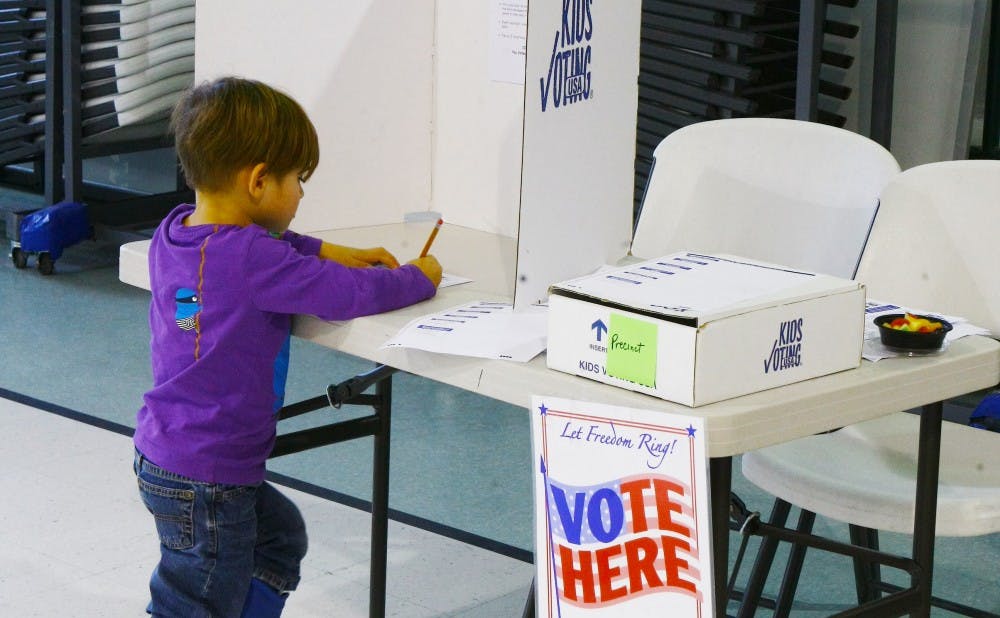In an exciting Wednesday night virtual meeting, DSG talked about rules and procedures.
In addition to passing a resolution to extend the deadline for students to opt in to receive letter grades, the Duke Student Government Senate discussed changes to election rules and the Student Organization Finance Committee structure at its weekly meeting, which has been held via Zoom after Duke sent students home.
Attorney General John Markis, a sophomore and senior news reporter for The Chronicle, presented proposed changes to election rules and procedures for upcoming elections. The Senate agreed to a new rule lowering the number of signatures required for first-years to run for Senate from 50 to 25.
The new rules around elections also now include a stipulation that the attorney general “may not use priming language when opening the polls to the undergraduate body. They also allow for candidates to receive cash advances for campaigns instead of requesting a refund, and they ban candidates and supporters from using listservs to share “messages other than general election reminders which regard all candidates equally.” Messages of support can still be shared on platforms like GroupMe, Facebook and Instagram.
Markis wrote in a message to The Chronicle that DSG had changed the rules before the 2020 Young Trustee election, but “didn’t do a thorough enough job,” so the remaining edits reflected the areas that DSG may have missed the first time around. Some aspects, such as the priming section, he wrote, reflected a petition filed in the DSG Judiciary by junior Jason Scharff Feb. 12.
Although the DSG Judiciary ruled in favor of Markis in that case, it also recommended that the Senate limit the rights and duties of the attorney general position in the future.
Since many candidates had already begun campaigning before the rules were passed, Markis explained that candidates would not be penalized for any rules broken before enactment of the new rules.
In other business:
Alongside the rule changes, Duke also heard from students both inside and outside DSG on various projects related to COVID-19.
The Senate heard updates from two first-years, Shehzan Maredia and Lily Levin, on initiatives that they’ve spearheaded. Maredia talked about the ContainIt contact tracing app that he and other Duke students developed to combat the spread of COVID-19, and Levin discussed updates on the Duke Mutual Aid fund that she helps manage.
Maredia emphasized that gaining the support of administrators in the initiative will be crucial in getting the app deployed for use in the App Store.
Levin noted that since Duke launched its Student Assistance Fund April 6, the Mutual Aid fund will now be mainly serving workers. She added that all funds are currently going through her personal bank account, so she is working towards making the fund more sustainable in the future.
Senator Hana Hendi, a first-year, promoted Blue Devils Care, the University’s expanded, 24/7 mental telehealth support service announced in an email sent to students April 1. Senator Shrey Majmudar, a sophomore, added that none of Duke’s peer institutions have done anything similar to this—a completely free mental telehealth service—so it is important to make more students aware of it.
The Senate also heard from sophomore Drew Flanagan, incoming SOFC chair, on how to fix current structural problems with SOFC and how to more effectively allocate money to student groups. In the presentation, he proposed adding an executive vice-chair position below the chair position in the SOFC leadership structure.
“We also thought it might make sense to add an executive vice-chair, kind of parallel to the DSG executive branch model, just to alleviate the stress that falls on the chair,” he said.
He told the Senate that he hopes to present more specific by-laws in next week’s meeting.
Editor’s note: Levin is also a columnist for The Chronicle.
Get The Chronicle straight to your inbox
Signup for our weekly newsletter. Cancel at any time.

Mona Tong is a Trinity senior and director of diversity, equity and inclusion analytics for The Chronicle's 117th volume. She was previously news editor for Volume 116.

